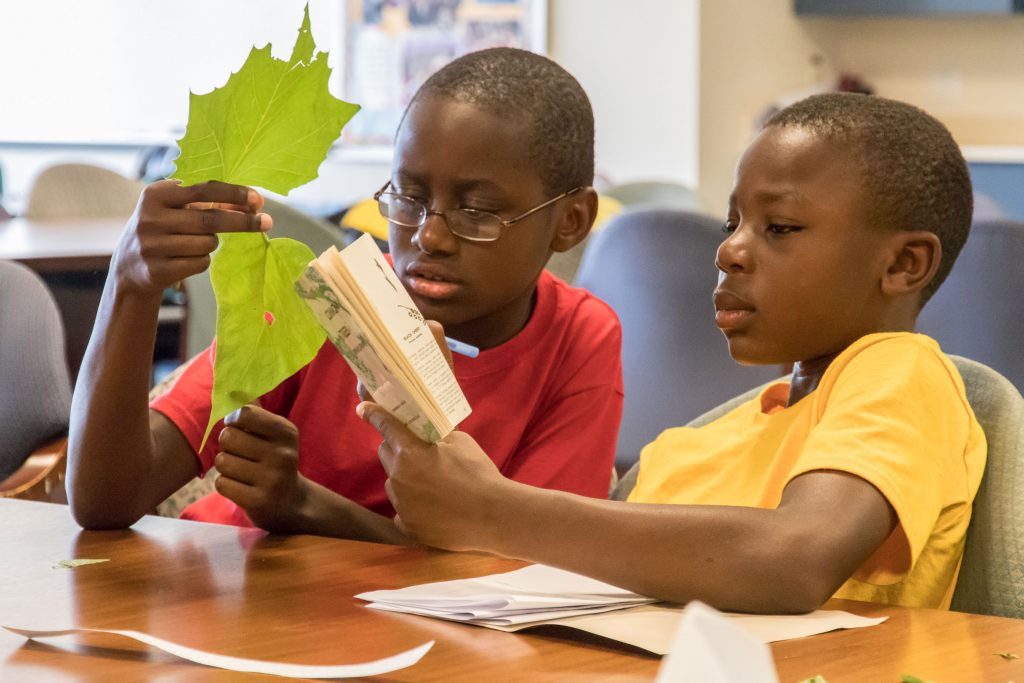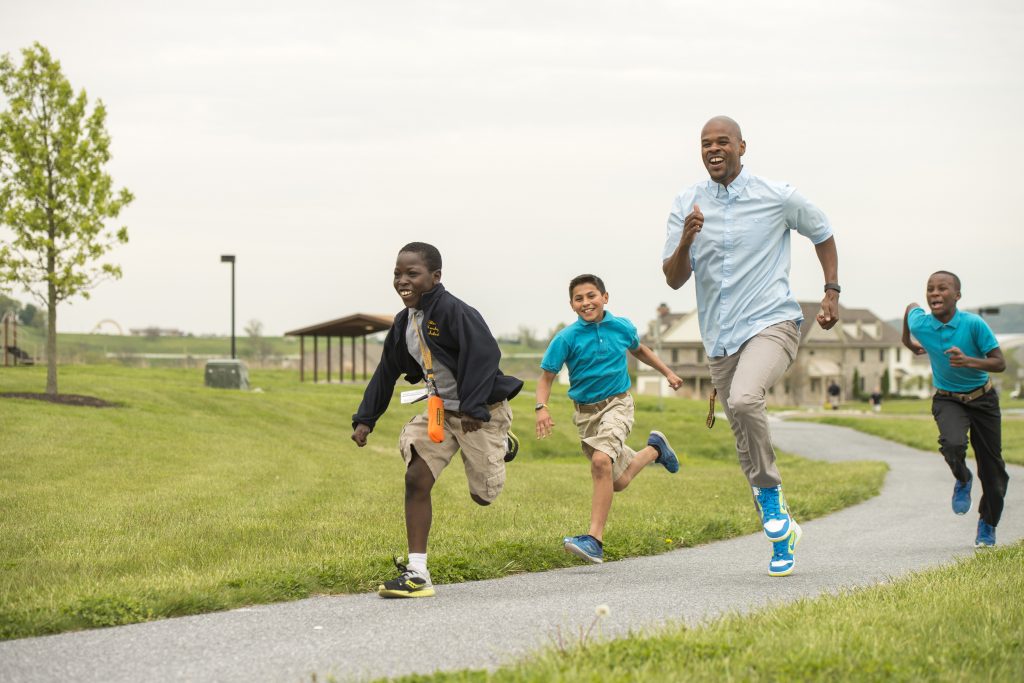Reducing Summer Learning Loss with Year-Round Experiences Summer Program
For many students across the U.S., summer is full of vacations, time spent outdoors, and gatherings with friends and family. These activities are fun and relaxing, but they don’t always enrich a child’s mind the same way school does. This can lead to summer learning loss and causes many teachers to spend weeks re-teaching critical material when school starts.
Unfortunately, summer learning loss is more extreme for students in low-income environments. These students may not have a safe place to play with friends, or they may not have the opportunity to travel outside of unsafe neighborhoods.
Many low-income students lose more than two months of reading achievement during their summer vacations.
For Milton Hershey School students, they have another option: the Year-Round Experiences (YRE) program. The goal of the YRE program is to provide a safe, nurturing, and enriching environment all year long, even during the holiday and summer months. Through exciting activities that support classroom learning, students explore new interests and build positive relationships.
“We want them to continue developmentally and try new things,” said Michael Campbell, MHS Director of Year-Round Experiences Program. “Some of them are doing things they would never do on their own.”
The MHS YRE team is working to make the experience positive and fun for approximately 300 students of all age levels this summer. Learn more about their efforts to combat summer learning loss and put a smile on every child’s face.
Building on Classroom Learning with STEAM Activities
The YRE program at MHS divides students into three groups—pre-K through second grade, third grade through sixth grade, and seventh grade through ninth grade. Each age group participates in weekly activities that are STEAM-oriented with relevant, hands-on lessons geared towards science, technology, engineering, the arts, and mathematics. Many students have participated in Lego robotics or computer animation.
“No matter how we change the program and activities, it can still start to feel like a routine,” said Campbell. “So we’re working to make sure the lessons are hands-on without lectures.”
By avoiding classroom-like lectures and focusing on interactive lessons, the team has found that students are more receptive to the STEAM skills being shared. YRE counselors also work to make sure kids don’t become complacent and always have something new on the horizon to spark their interest.
Appealing to Younger Students
To appeal to younger students enrolled in the program, YRE counselors analyzed activities from last year and created a rotation schedule for five high-interest activities. This ensures every student has a chance to participate in them this year.
“They’re kids. We want them to experience a normal summer as if they were home, similar to a day camp experience,” said Campbell.
One of the students’ favorite activities is the outdoor adventure segment of YRE programming. They complete activities that are new to many students such as tubing down a creek, learning how to snorkel, building a fire, using a compass, and setting a campsite. This year, the YRE staff also created learning outcomes to ensure students build life skills through the program. For example, if the learning outcome is being able to build a fire, kids will feel empowered once they achieve this goal.
YRE counselors are encouraged to be energetic sources of support to students who may experience homesickness throughout the summer. By eliminating downtime and creating a loyal group dynamic, young students feel more encouraged and excited for YRE programming each day.
Providing Professional Development for High Schoolers
Senior Division students can gain professional experience through the YRE program by working as counselors, lifeguards, or Spartan warriors—a group of students who complete miscellaneous jobs across campus such as landscaping and maintenance.
If a student is 16 years or older and has chosen not to work or complete an internship through another MHS department, this year the YRE staff has organized professional development opportunities. Approximately 20 sophomores and juniors enrolled in the YRE program are taking college visits, listening to motivational guest speakers, and learning life skills such as finance and budgeting. The staff treat older students with respect, so they appreciate learning and aspire to lead productive and fulfilling lives.
“My life’s purpose [can be defined] in six words: help kids love life and learning,” shared Campbell. “That’s what I want to be about, whether I’m working in [the YRE program] or serving the community.”
To build a successful summer program and combat summer learning loss, the following tips can help ensure students stay active and grow to love life and learning:
- Create lessons that support classroom learning in a fun, hands-on way.
- Determine which activities students enjoy most, and pair them with learning outcomes to empower the group.
- Work with high energy and a clear purpose to promote positivity and eliminate homesickness.
- Give older students professional development opportunities, and treat them with respect.




